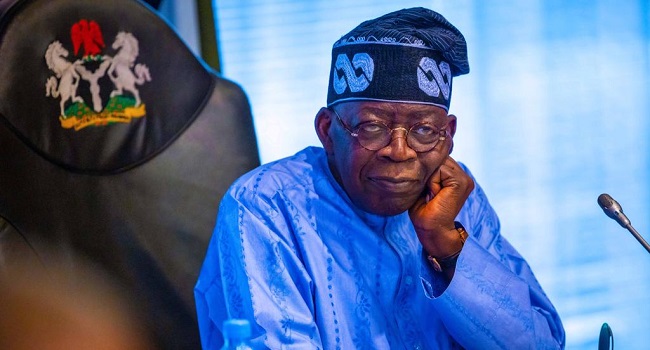Nigeria’s economic performance in 2025, as reflected in its GDP per capita, painted a concerning picture of decline against a backdrop of long-term economic contraction. The International Monetary Fund (IMF) reported a GDP per capita of $835.49 in 2025, a 4.74% decrease from $877.07 in 2024. This continues a downward trend observed since 2014 when the GDP per capita was significantly higher at $3,220. The GDP per capita, a key indicator of the average standard of living, reflects the total value of goods and services produced within a country divided by its population. This decline signals a shrinking economy and a potential decrease in the overall well-being of Nigerian citizens. However, the IMF forecasts a rebound in the subsequent years, projecting a rise in GDP per capita in both 2026 and 2027, eventually surpassing the $1,000 mark in 2028, reaching $1,040. This projection suggests potential for future economic recovery, though the path to regaining previous levels of prosperity remains long.
Nigeria’s economic standing places it within the lower-middle-income bracket among sub-Saharan African nations, with a GDP per capita falling within the $500 to $2,500 range, alongside many other countries in the region. Some nations within the region even fall below the $500 mark, highlighting broader economic challenges in sub-Saharan Africa. Coinciding with this period of economic contraction, the National Bureau of Statistics (NBS) embarked on a rebasing exercise of the GDP, aiming to incorporate previously excluded sectors into the calculation. These new sectors include the digital economy, pension funds, the National Health Insurance Scheme, the Nigerian Social Insurance Trust Fund, modular refineries, domestic households as employers, quarrying and other mining activities, and even illegal and hidden economic activities. This comprehensive rebasing effort aims to provide a more accurate and contemporary representation of Nigeria’s economic landscape, potentially impacting future GDP per capita figures.
Despite the declining GDP per capita, signs of optimism emerged from the private sector. The Purchasing Managers’ Index (PMI) from Stanbic IBTC Bank showed an increase in business confidence for the second consecutive month, indicating potential for growth. Both output and new orders continued to rise in early 2025, driven by improving customer demand and increased willingness to invest in new projects. This positive momentum in the private sector suggests resilience and potential for driving economic recovery. The growth in new orders also led to increased hiring for two consecutive months, signifying job creation and further bolstering confidence.
However, challenges related to inflation persist. While input prices increased at a slower pace, output prices also saw a slower rise – the slowest since July 2024. High inflation, averaging 33.1% in 2024 compared to 24.52% in 2023, continues to pose a significant threat to the economy. This persistent inflation is attributed to several factors, including substantial foreign exchange depreciation, increases in petrol prices due to liberalization policies, structurally low food supplies exacerbated by extreme weather conditions, and increased demand during festive periods. Managing inflation remains a crucial task for ensuring sustained economic recovery.
Conflicting projections for Nigeria’s 2025 real GDP growth further complicate the economic picture. The IMF projected a 3.2% growth, a more conservative estimate compared to the Nigerian Economic Summit Group’s (NESG) more optimistic 5.5% projection. The NESG contends that this higher growth rate is achievable if Nigeria maintains its focus on stability-oriented reforms. However, they acknowledge that inefficient policy implementation and existing economic constraints could limit growth to 3.4%, and a reversal of reforms could further depress growth to 2.7%. The discrepancy between these projections underscores the uncertainty surrounding Nigeria’s economic trajectory and the importance of effective policy implementation.
The Central Bank of Nigeria (CBN) offered yet another perspective, projecting a 4.17% GDP growth for 2025, accompanied by a projected decline in inflation and increased foreign exchange inflows. The CBN attributes this projected growth to the continued implementation of government reforms, stable crude oil prices, improvements in domestic oil production, and increased refining capacity contributed by the Dangote refinery and the revitalization of the Port Harcourt and Warri refineries. A stable exchange rate is also seen as crucial for maintaining this positive momentum. The CBN emphasizes the importance of collaboration between monetary and fiscal authorities, alongside private sector participation, in achieving these economic objectives. The varying projections from the IMF, NESG, and CBN highlight the complexity of accurately forecasting Nigeria’s economic performance and underscore the importance of addressing underlying challenges such as inflation, exchange rate volatility, and the need for effective policy execution.


